
If you have the privilege of being a pet parent, you probably have a team of veterinary professionals in your corner. You are likely greeted with a smiling face each time you step into your local clinic, making it impossible to be aware of the heartbreaking reality of working in this field. We are often plagued with the misconception that our jobs are filled with puppies and kittens each day, but that couldn’t be further from the truth.
I’ve recently noticed a wall up between veterinary professionals and pet parents, and it breaks my heart in many ways. I ask you to join me as I discuss the realities of working in veterinary medicine in hopes that we can begin to understand each other a bit more.
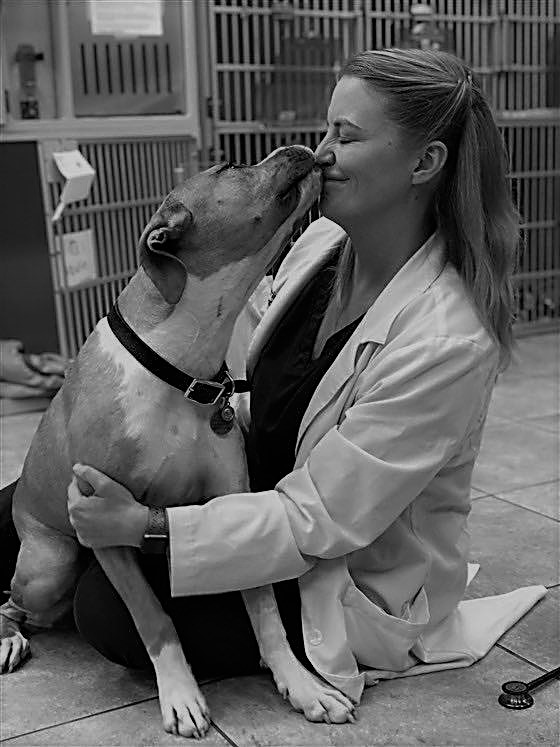
Note: In this article, I will be discussing topics relating to depression and suicide, so it may be best to click away if these conversations trigger you in any way.
The Devastating Statistics
You may have recently learned about the prevalence of depression and suicide in the veterinary field. It’s not that these occurrences are new, but they are finally being brought to light due to an overwhelming need for change. Many of us have lost a treasured colleague due to the effects of this work, proving just how much it hurts to care this much.
There is currently a mental health crisis in the veterinary field. The veterinary profession has the highest rate of suicide of all medical professions, with this career ranking just under police officers in terms of suicide prevalence. Female veterinarians are 3.5 times more likely to take their lives than the average person, with male veterinarians being 2.1 times more likely. 75% of the vets that have taken their life worked in small animal medicine, meaning they cared for our beloved cats and dogs.
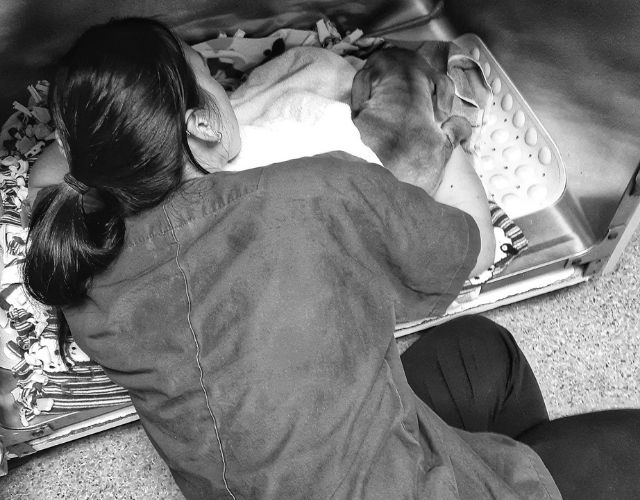
Not only do these statistics impact veterinary doctors, but they impact veterinary technicians as well. Veterinary technicians are anywhere from 1.6 to 2.3 times more likely to end their life by suicide, proving just how much the negative impacts seep into every role in this field.
Anytime you have a career that is mentally taxing, it is never due to one cause. There are always multiple factors that play a role in the downfall of so many dedicated animal lovers, many of which the public is unaware of.
So What Are The Issues?
I’m going to walk you through some of the struggles we face each day in this profession. While I’ll be speaking from my personal experiences with working in emergency and critical care for six years, I can promise you that every veterinary professional has stories just like my own.
Our Patients Can’t Understand That We Are Helping Them
My heart aches each time I have a frightened patient that doesn’t understand my intentions to help. They look around the room nervously as I place their IV catheter, surrounded by faces they have never seen before. While I can attempt to comfort them with a soft tone and reassuring pets, there is no denying their fear. Most patients warm up to us in time, but their initial reservations always break my heart.
I have laid awake at night knowing that I had to cause discomfort to a furry friend in order to perform diagnostics in their last moments of life. I want to be the one to offer an animal love and comfort in their last hours, but instead, I have to draw blood for a test that leads to the decision of euthanasia. Though I know they probably forget about all the scary pokes as they lay in their owner’s arms, it stays with me. Our patients just can’t understand that we are helping them.
The Amount Of Death We See
Aside from working in human oncology, there is no other medical career in which death is promised. We care for many of our patients from puppyhood to their senior years, meaning their death is inevitable at some point. Euthanasia is a normal part of our shifts, and that’s something that not many medical professionals can say.
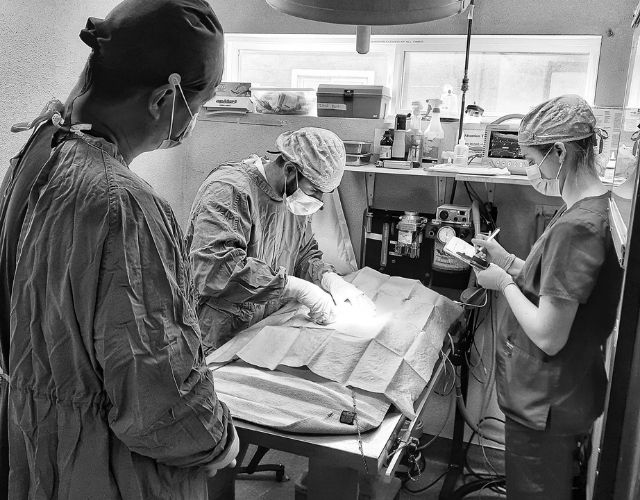
With working in emergency medicine, death almost became normal. I remember working a Christmas Eve shift that tore me apart, as I had to assist in 11 euthanasias during a 12-hour shift. Not only did I feel the impact of watching each animal drift out of this world, but the immeasurable pain their owners carried in letting them go.
We Are Grief Counselors Without The Training
The hardest part about playing a role in a pet’s death is not the death itself, but the pain the owners feel. We are there to witness one of the worst moments in someone’s life, and those images are often seared into our minds. We know your heart is breaking into a million pieces, and we want to help in any way that we can.
We sit and talk with owners until they have calmed down enough to drive home and offer a big hug as we say goodbye. Though we are not trained grief counselors, we are happy to take on the role. We can’t imagine not consoling a grieving pet owner in these moments, but this takes a toll on us over time. There is no course in our educational path that teaches us how to counsel effectively, meaning we don’t often have the tools to care for ourselves after these conversations.
We Are Under Financial Stress
Financial stress plays a major role in the death of so many veterinary professionals. The misguided belief of vets only being in this field for the money is not only wildly inaccurate, but impossible due to student loan burdens.
The veterinary career has the lowest return investment of any profession, meaning our salaries cannot keep up with our loan debt. While the average beginning salary of a general practice veterinarian is about $95,000 a year, the average student loan burden for vets is around $200,000.
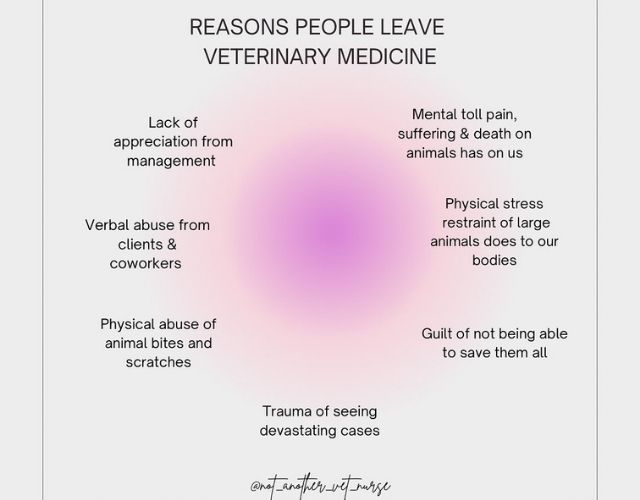
This means that most veterinarians will be plagued with a monthly student loan payment of anywhere from $1,000 to $2,000, many of which will be paying off their student debt into their 60’s. Many veterinarians and veterinary technicians have to get second jobs in order to get by or pick up an exhausting amount of extra shifts.
This not only means that many veterinary professionals struggle to make ends meet, but it stings to the core when clients accuse us of being in it for the money. If we could pay every bill for every animal in need, I promise you we would.
We Can’t Do It All For Free
Now that you have a better understanding of the low profit to investment margins in the veterinary field, this can lead us into the topic of not being able to financially assist every client in need. I agree with every ounce of my being that no pet should be deprived of treatment due to cost concerns, but it’s just not the reality in the current state of veterinary medicine.
In human medicine, most medically insured people will only have to produce a copay in the event of a medical emergency. Not only will most fees be worked out by your insurance provider, but there are also free clinics and hospitals that serve the uninsured. Medical care is expensive, but you are not stuck with the entire bill in most fields of medicine. We don’t have that yet in veterinary medicine. While there are pet insurance options available now, most still require you to pay the bill upfront. It’s unfair, but it’s the reality.
“There is nothing more soul-crushing in life than having the skills and ability to help something helpless and you can’t do it because someone can’t afford treatment.” – Melanie Bowden, DVM – TEDx Talks
When clients are unable to pay their pet’s veterinary bills, we are often met with criticism when their fees are not immediately comped. Many pet parents are unaware of this, but when we take on the financial burden of a case, we are the ones that have to pay for the fees in the end. Our paychecks are docked, our managers get angry if the debt is not paid, and we are left with even more financial stress than we began with. We want to help you, but many of us can only afford to pay for our own pets’ care.
Again, it’s not fair, and I hear you, but that is veterinary medicine. The only thing worse than not being able to help a client with financial concerns is being accused of not caring because of it.
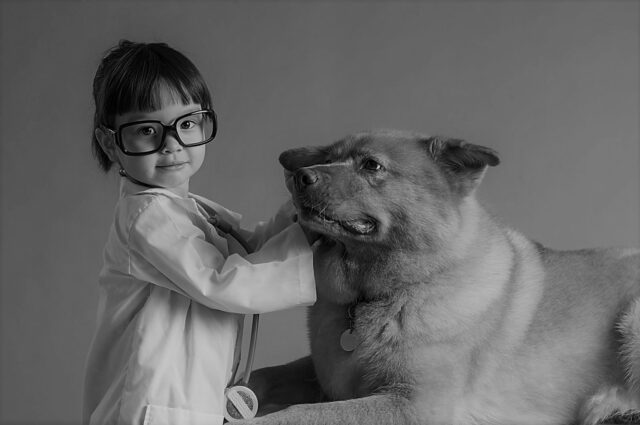
We Are Emotionally Blackmailed
As I mentioned above, we are often accused of not caring when financial concerns come into play. Our love of animals is used as a weapon against us, and we are accused of being monsters when we cannot help every single client. We are often hit where it hurts, and that is in the phrase “don’t you love animals?”
Veterinary professionals are emotionally blackmailed in multiple ways. We are accused of not caring about our patients, we are threatened with social media smear campaigns, and we are often called incompetent when finances affect our ability to perform proper testing. If you scroll through any veterinary clinic reviews, I promise you will find a few that contain hurtful phrasing. I know these comments come from a place of pain when they are made, but they stick with us each time. It makes us question our humanity and our worth.
We Work In Toxic Environments
Many problems in the field come from outside factors, but just as many come from within the walls of our hospitals. The turnover rate in veterinary medicine is astronomical these days, and so much of it is due to the toxicity we create within our own team. The bullying from clients can be devastating, but the bullying from other colleagues is even worse.
Veterinary professionals are harassed within our team for not working hard enough. We are picked apart if our skills are lacking in any way. We face criticism for setting personal boundaries, and we are made to feel guilty when taking time off for any reason. Many times if we do reach out to management with our current struggles, we are further bullied instead of being listened to.
There is an overwhelming lack of support in veterinary medicine in multiple ways, and this has become the standard in many clinic settings. While I can thankfully say that many companies are beginning to acknowledge the importance of taking care of their staff, we have a long way to go.
So How Do We Fix It?
In order to fix the overwhelming issues within our field, change needs to occur in many aspects. But one thing that will always make a difference is support from the pet parents we work with each day. We, of course, do this work because we love our patients, but we care for their owners just as much.
The need to help others outweighs many of the cons we face each day, which is why so many of us keep going. We know we have so much to change within the walls of our clinic, but your support and understanding mean everything as we maneuver these steps!
If you are a veterinary professional that is currently struggling, I urge you to reach out to the following resources for guidance: Not One More Vet, The Riptide Project, Veterinary Confessional Project, Not Another Vet Nurse
Resources for statistics: 1, 2
The post The Heartbreaking Reality Of Working In The Veterinary Field appeared first on iHeartDogs.com.
via Whisker Therapy